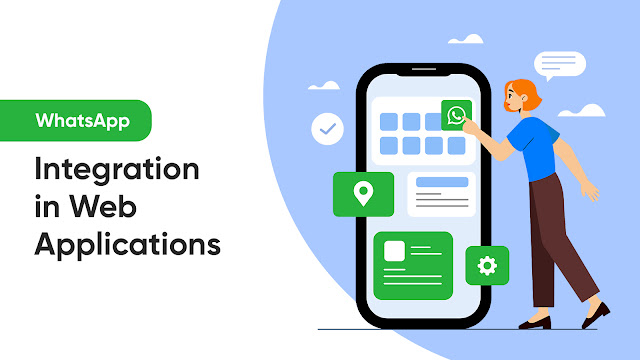Strategies for Successful WhatsApp Automation in Call Centers
In the ever-evolving landscape of customer service, businesses are constantly seeking innovative ways to enhance user experience and streamline communication. One such channel that has emerged as a game-changer is WhatsApp. Originally known for personal messaging, WhatsApp for call Center has now become a powerful tool for customer service. In this blog post, we'll explore the rise of WhatsApp as a customer service channel and delve into the benefits of leveraging automation for call centers.
The Rise of WhatsApp as a Customer Service Channel
WhatsApp's ubiquity across the globe makes it an attractive platform for businesses to connect with customers. With over two billion monthly active users, the potential reach of WhatsApp is unparalleled. Recognizing this, many businesses are integrating WhatsApp into their customer service strategies, providing a convenient and familiar channel for users to seek assistance.
The Benefits of WhatsApp Automation for Call Centers
- Enhanced Efficiency: Automating customer interactions on WhatsApp allows call centers to handle a large volume of queries simultaneously. This not only improves efficiency but also reduces wait times for customers.
- 24/7 Availability: Unlike traditional customer service channels, WhatsApp automation enables businesses to provide round-the-clock support. This accessibility is crucial in today's globalized and fast-paced business environment.
- Cost-Effective Solutions: Automating routine and repetitive tasks through WhatsApp can significantly reduce operational costs for call centers. This cost-effectiveness is particularly attractive for businesses looking to optimize their resources.
Identifying Use Cases for WhatsApp Automation
Understanding when and where to implement WhatsApp automation is crucial for its success. Let's explore common scenarios for automating customer interactions on WhatsApp and assess the suitability of automation for specific customer service needs.
Frequently Asked Questions (FAQs): Implementing a WhatsApp chatbot to handle frequently asked questions allows call centers to resolve common queries instantly, freeing up live agents to address more complex issues.
Order Tracking and Updates: Automation can be employed to provide real-time updates on order status, shipping information, and delivery confirmations, keeping customers informed without the need for human intervention.
Appointment Scheduling: For service-oriented businesses, a WhatsApp chatbot can facilitate appointment scheduling, cancellations, and reminders, streamlining the process for both customers and agents.
Implementing WhatsApp Automation Effectively
Choosing the Right WhatsApp Business API Provider: Selecting a reliable API provider is foundational to the success of WhatsApp automation. Consider factors such as scalability, security, and compliance with WhatsApp's policies.
- Designing User-Friendly and Intuitive Chatbots for WhatsApp: The success of automation hinges on user experience. Designing chatbots that are intuitive, capable of natural language processing, and aligned with the brand's tone enhances customer satisfaction.
Optimizing WhatsApp Automation for Success
- The implementation of WhatsApp automation is not a one-time endeavor but an ongoing process that requires monitoring and refinement. Let's explore how to optimize WhatsApp automation for sustained success.
Gathering Customer Feedback to Improve the WhatsApp Experience: Actively seeking customer feedback provides valuable insights into their experience with WhatsApp automation. This feedback loop helps identify pain points, allowing businesses to make informed adjustments and enhancements.
Ensuring a Seamless Handover from Chatbot to Live Agent When Necessary: While automation is powerful, there are instances where human intervention is irreplaceable. Implementing a seamless transition from chatbot to live agent ensures that complex issues are handled with care, maintaining a high level of customer satisfaction.
Conclusion
The rise of WhatsApp as a customer service channel presents a wealth of opportunities for call centers to enhance efficiency, improve customer satisfaction, and reduce operational costs. Leveraging WhatsApp automation strategically can revolutionize how businesses interact with their customers. By identifying use cases, implementing automation effectively, and continuously optimizing performance, call centers can stay at the forefront of customer service innovation in the digital age. Embracing WhatsApp automation is not just a technological upgrade; it's a commitment to delivering exceptional customer experiences in a rapidly changing world..We're here to assist you. Please feel free to get in touch with us, and we'll be delighted to provide you with the support and information you need.



.png)
Comments
Post a Comment